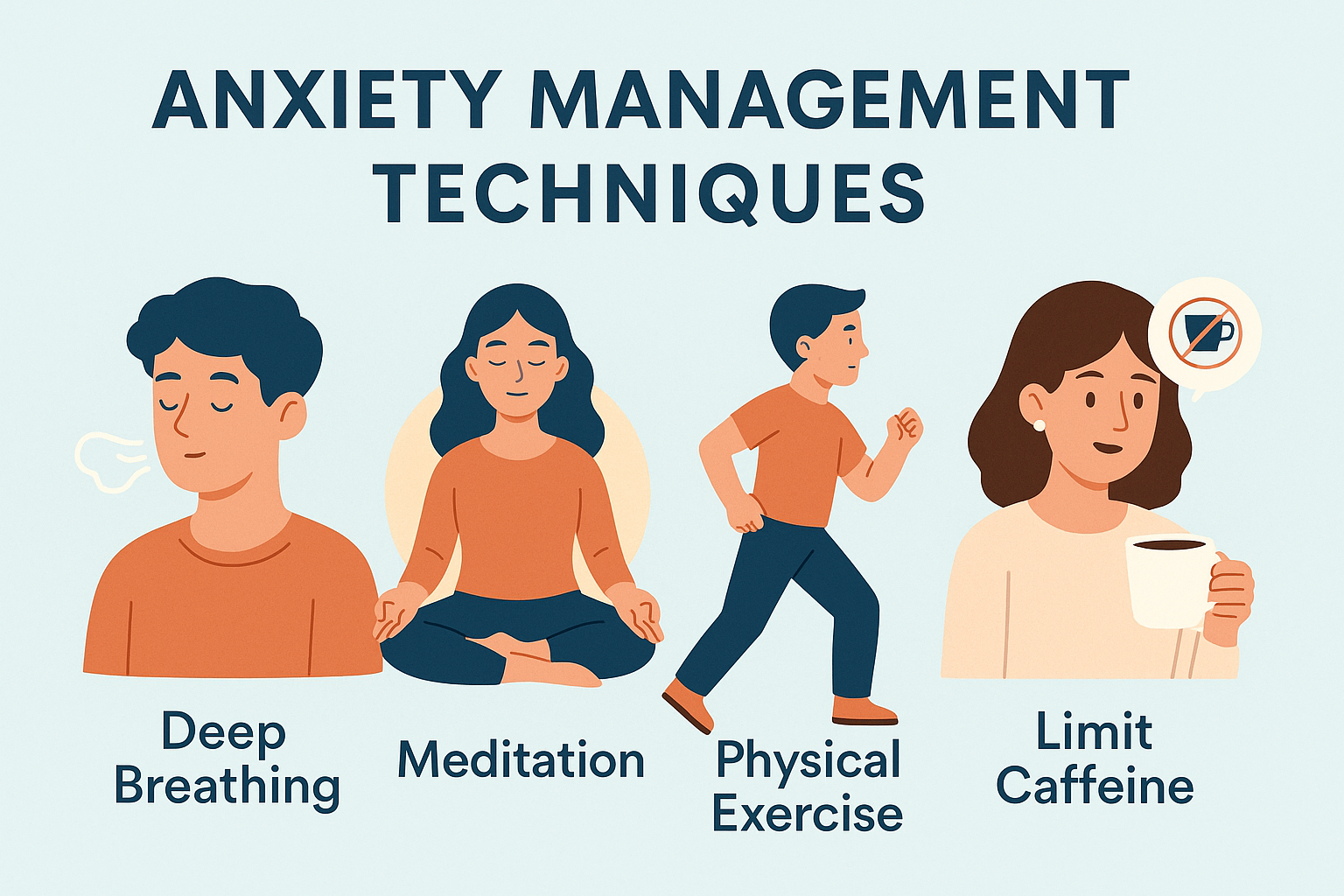
Finding Relief Through Personalized Anxiety Therapy
Living with anxiety can feel overwhelming, leaving you stuck in a cycle of worry and stress.
But there is hope.
Anxiety therapy offers a safe space to explore what’s weighing on your mind and learn practical tools to take back control.
By understanding the benefits of anxiety therapy, you can find new ways to cope, build resilience, and regain a sense of peace in your life.
This blog post will walk you through how anxiety therapy can help you feel stronger, more in control, and better equipped to face the challenges ahead.
Understanding Anxiety and its Impact on Your Daily Life
At its core, anxiety is your body’s natural response to potential danger. It's a survival mechanism that kicks in when you feel threatened or fearful.
In small doses, anxiety can be beneficial, keeping us alert and focused on potential hazards.
But when you're struggling with an anxiety disorder, your body is constantly on high alert. It's as if the alarm system in your brain is always set off, even when there's no immediate danger.
This overactive response can manifest itself in a variety of ways, including:
● Physical symptoms such as rapid heartbeat, sweating, dizziness, and shortness of breath
● Intense feelings of fear, worry, or panic
● Trouble concentrating or controlling your thoughts
● Avoiding certain situations or activities that trigger your anxiety
● Difficulty sleeping, eating, or performing daily tasks
Over time, these symptoms can significantly impact one's overall well-being and quality of life. They may interfere with relationships, careers, and other important aspects of life.
What are the Benefits of Anxiety Therapy?
Managing your anxiety through therapy has numerous benefits, including:
Learning Coping Skills
Therapy can teach you practical tools to restore calm and techniques for managing your anxiety in the moment.
These may include deep breathing exercises, mindfulness practices, or cognitive reframing strategies.
These skills can help you calm your mind and body and reduce the intensity of your symptoms.
Identifying Triggers and Patterns
A therapist can help you identify the specific situations, thoughts, or behaviors that trigger your anxiety.
By understanding these patterns, you can better prepare for and manage them when they arise.
Addressing Underlying Issues
Anxiety can often be rooted in past experiences or unresolved emotions.
In therapy, you can explore these underlying issues and work towards resolving them, leading to long-term relief.
Improving Overall Well-being
By managing your anxiety, you can improve your overall well-being and quality of life.
You may experience better sleep, improved relationships, and greater emotional control.
How Beckloff Behavioral Health Center Offers Professional Support for Anxiety Disorders
Struggling with anxiety can feel like you’re carrying an invisible weight that holds you back from enjoying your life.
At Beckloff Behavioral Health Center in Dallas, TX, we understand how challenging this can be and are here to help.
Our professional anxiety therapy services are designed to support you with care and evidence-based methods that truly make a difference.
Here’s how we help:
● Cognitive-Behavioral Therapy (CBT): Learn practical skills to manage your symptoms, face avoided tasks, and regain confidence through this highly effective approach.
● Exposure Therapy: Safely confront fears in a supportive environment, guided by a therapist, to ease anxiety related to phobias, panic, or social situations.
● Acceptance & Commitment Therapy (ACT): Align your actions with your values while addressing anxiety in a way that feels right for you.
And more.
Let’s work together to help you feel more in control and improve your quality of life.
Schedule your appointment today!



